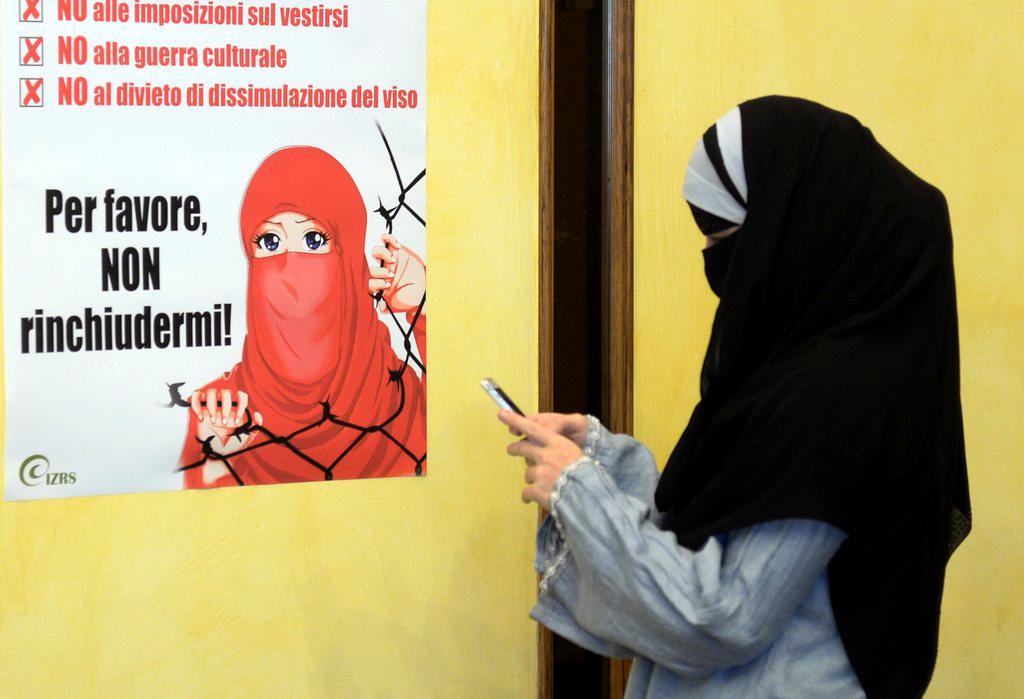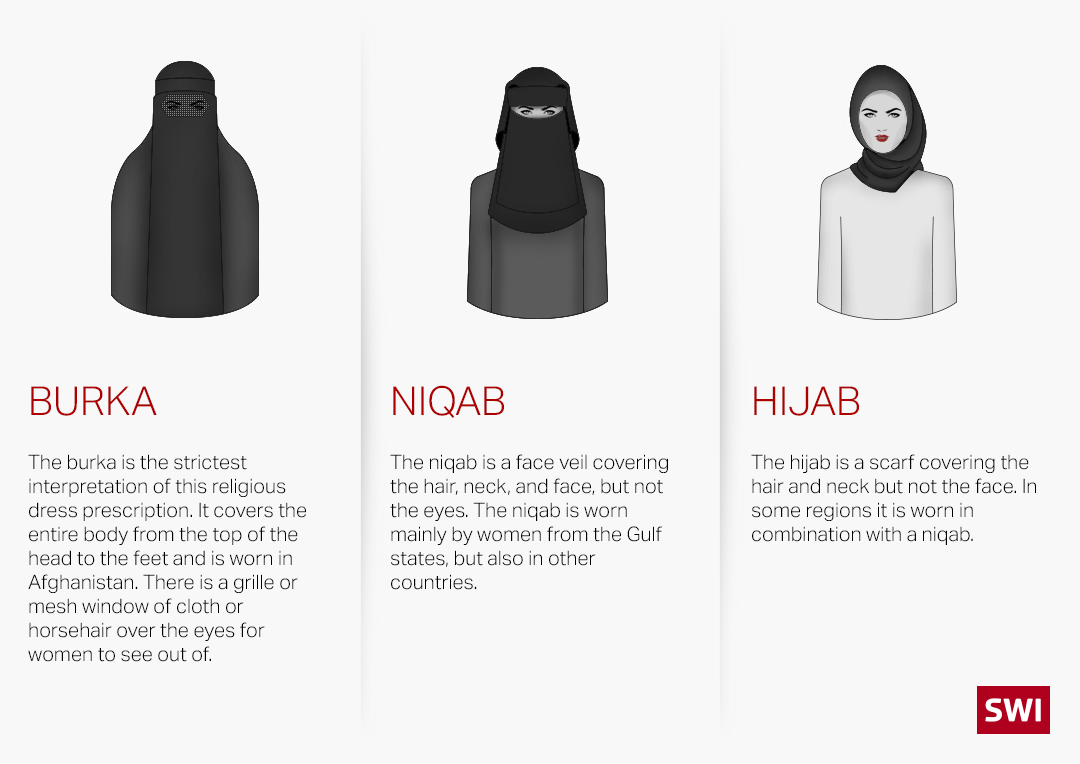
Veiled women can be denied Swiss state assistance

The Swiss cabinet has clarified that women wearing burkas or niqabs can be denied social aid or unemployment insurance, as face coverings can result in identification issues or limit possibilities for finding a job.
On Thursday, the cabinet responded to a parliamentary question on the subject, and clarified when face coverings could affect recipients of state financial assistance. According to them, the burka or niqab could pose a problem when it came to identifying beneficiaries of social welfare payments. The religious garments could also create difficulties if a medical examination is required to determine if a person qualifies for support. In these cases, the government ruled that the women concerned could be denied state assistance for refusing to cooperate. In addition, women who limit their employment opportunities on account of their religious beliefs or insistence on covering their faces could also be denied unemployment insurance.

Permits and passports
According to the cabinet, in certain cases, wearing a burka or niqab could become an obstacle when it comes to acquiring a Swiss resident permit. These include participating in the workforce, acquiring skills through training or learning a language. The women could even jeopardise their chances of acquiring Swiss nationality, as a key criterion for successful integration is participation in Swiss social and cultural life.
It is not just women who stand to lose. A criterion for naturalisation is showing support for a spouse’s attempts to integrate into Swiss society. If the authorities suspect a man applying for a Swiss passport of preventing his wife from integrating, he will not be considered as integrated himself and will be denied naturalisation.
Religious or cultural beliefs that clash with so-called Swiss values have resulted in court proceedings. Cases where parents refused to send their daughters to swimming lessons on religious grounds have resulted in fines based on the argument that swimming lessons encourage socialisation and integration. In another case, the Muslim family of two teenage boys who refused to shake their female teachers’ hands for religious reasons had their application for citizenship suspended.
Resistance to the burka
A ban on face coverings implemented in 2016 after a popular vote is currently in place in the Swiss canton of Ticino. A call for a nation-wide ban on the burka was narrowly passed last year in one house of parliament, though it is unlikely to succeed. In addition, a people’s initiative on the same issue has been launched and those behind it have until September 2017 to gather the 100,000 necessary signatures to force a nationwide vote, irrespective of what the parliament decides. According to a recent poll, over 70% of the Swiss population would support a nationwide ban on the wearing of veils or any kind of clothing that hides the face in public.
Muslims constitute about 5 percent of Switzerland’s more than 8 million population. Most Muslim immigrants came from the former Yugoslavia and Turkey.

In compliance with the JTI standards
More: SWI swissinfo.ch certified by the Journalism Trust Initiative

























You can find an overview of ongoing debates with our journalists here . Please join us!
If you want to start a conversation about a topic raised in this article or want to report factual errors, email us at english@swissinfo.ch.